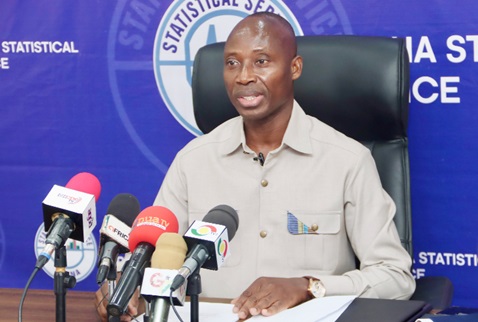Ghana’s inflation rate dropped to 8.0 per cent in October 2025, the lowest level recorded since June 2021, marking the tenth consecutive month of decline.
The latest data from the Ghana Statistical Service shows a significant fall from the 9.4 per cent rate recorded in September and an improvement from the 23.8 per cent observed in December 2024, underscoring a sustained easing of price pressures across the economy.
In addition to the year-on-year decline, the month-on-month inflation rate also fell by 0.4 per cent, indicating a modest decrease in the general price level between September and October.
Government Statistician Dr Alhassan Iddrisu, presenting the figures in Accra, described the consistent decline as evidence of the effectiveness of ongoing monetary and fiscal measures.
"For the first time since June 2021, Ghana has achieved single-digit inflation. This means that the rate at which prices of goods and services are increasing has slowed significantly," Dr Iddrisu stated. "We’ve seen improvements across food, transport, and housing categories — key indicators of household welfare."
The report highlighted that food inflation fell to 9.5 per cent in October, down from 11.0 per cent the previous month, while non-food inflation eased to 6.9 per cent from 8.2 per cent. Despite this, non-food prices saw a slight month-on-month increase of 0.04 per cent. Dr Iddrisu also noted that "food is the largest contributor to inflation," accounting for 4.07 percentage points of the overall 8.0 per cent rate.
A detailed breakdown revealed that inflation for goods slowed to 9.3 per cent from 11.2 per cent, while services inflation saw a more moderate decline to 4.6 per cent from 4.8 per cent. Notably, the inflation rate for locally produced items fell sharply to 8.0 per cent from 10.1 per cent, while imported inflation saw a slight uptick to 7.8 per cent from 7.4 per cent.
Significant regional disparities persist, with the North East Region recording the highest inflation at 17.3 per cent, while the Bono East Region had the lowest at just 1.1 per cent. The Greater Accra and Ashanti regions remained the largest contributors to the national inflation rate.
